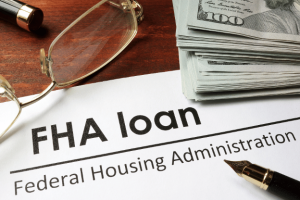The Mortgage Lending Process in Raleigh: What You Need to Know Navigating the mortgage lending…
Unlocking the Potential of FHA Home Loans: A Comprehensive Guide

Unlocking the Potential of FHA Home Loans: A Comprehensive Guide
In the realm of homeownership, navigating the sea of mortgage options can be overwhelming. However, one option stands out for its accessibility and affordability: FHA loans. Backed by the Federal Housing Administration (FHA), these loans have opened doors to countless families across the United States, making the dream of owning a home a tangible reality. But before diving headfirst into the world of FHA loans, it’s crucial to grasp their intricacies and advantages. After all, committing to a mortgage is a significant decision with implications spanning decades. Let’s explore everything you need to know about FHA loans to make an informed choice.
Understanding FHA Loans
At its core, an FHA loan is a mortgage insured by the Federal Housing Administration, designed to facilitate homeownership, particularly for individuals with less-than-ideal credit scores. This government backing allows lenders to extend loans to borrowers who may not qualify for conventional mortgages due to their credit history. While FHA loans offer a pathway to homeownership for many, prospective buyers should conduct thorough research of all possible programs before proceeding.
Qualification Criteria
One of the primary appeals of FHA loans is their relatively lenient qualification criteria compared to conventional mortgages. Unlike traditional loans, which often require stellar credit scores and substantial down payments, FHA loans accommodate borrowers with credit scores as low as 500. Even individuals with credit scores between 500 and 579 can secure financing, albeit with a slightly higher down payment requirement. For those on the cusp of eligibility, consulting with a reputable lender can provide insights into improving creditworthiness through responsible credit management or seeking assistance from credit repair services.
Interest Rates and Mortgage Options
Interest rates play a pivotal role in determining the affordability of a mortgage. While FHA loans typically feature lower interest rates than their conventional counterparts, it’s prudent for borrowers to shop around and compare offerings from various lending institutions. Moreover, FHA loans are available in both fixed and adjustable-rate formats. While fixed-rate mortgages provide stability by locking in a consistent interest rate throughout the loan term, adjustable-rate mortgages may offer initial lower rates but may fluctuate over time. Assessing individual financial circumstances can help determine the most suitable mortgage option.
FHA Funding Fee
An essential aspect of FHA loans is the funding fee, a one-time payment due at the time of loan origination. This fee serves as a form of mortgage insurance premium, safeguarding lenders against borrower default and ensuring the sustainability of the FHA program. The amount of the funding fee varies depending on factors such as the loan amount, down payment percentage, and loan term.
For most FHA borrowers, the funding fee is 1.75% of the loan amount. While this fee can be financed into the loan, thereby minimizing immediate out-of-pocket expenses, it contributes to the overall cost of homeownership over the loan term. However, certain exemptions or reductions may apply for veterans, active-duty service members, and eligible surviving spouses, underscoring the FHA’s commitment to supporting diverse homeowner demographics.
Monthly Mortgage Insurance Premium (MIP)
In addition to the funding fee, FHA borrowers are subject to monthly mortgage insurance premiums (MIPs), which serve as ongoing insurance coverage for the duration of the loan. Unlike traditional mortgages that may require private mortgage insurance (PMI) until a certain loan-to-value ratio is reached, FHA loans mandate MIPs for the entire loan term, regardless of equity accumulation.
The MIP amount is determined by factors such as the loan amount, loan-to-value ratio, and loan term. Typically, borrowers pay an upfront MIP at the time of loan closing, followed by ongoing monthly payments. While upfront MIPs can be financed into the loan amount, monthly MIP payments are added to the borrower’s monthly mortgage payments, contributing to the overall cost of homeownership.
FHA borrowers need to factor any additional expenses into their budgeting and financial planning processes. While FHA loans offer accessibility and flexibility, the associated funding fee and MIPs contribute to the overall cost of homeownership and should be considered when evaluating affordability and long-term financial sustainability.
Down Payment Requirements
Saving for a down payment is often a significant barrier to homeownership for many prospective buyers. Traditional mortgages may demand down payments of up to 20% of the home’s value, making it financially daunting for some. FHA loans alleviate this burden by requiring a down payment as low as 3.5%, rendering homeownership more attainable for individuals with limited savings. However, those with lower credit scores might face a slightly higher down payment requirement, typically around 10%.
Additional Funding for Home Improvements
Beyond facilitating home purchases, FHA loans may include provisions for financing home improvements. This supplemental funding, which can amount to up to $25,000, enables borrowers to address minor issues or implement energy-efficient upgrades in their new homes. Such expenses are incorporated into the original loan amount, empowering homeowners to enhance their living spaces without incurring additional financial strain.
Navigating Closing Costs
Closing costs, comprising various fees associated with loan processing, mark the final financial hurdle before homeownership. While FHA loans entail closing costs, they are generally more affordable compared to conventional loans. Moreover, FHA regulations permit third parties such as sellers, builders, or lenders to cover these expenses, facilitating smoother transactions and enhancing affordability for buyers.
Financial Hardship Support
Life is unpredictable, and unforeseen circumstances such as job loss or injury can disrupt financial stability. In such situations, FHA borrowers may find relief through forbearance options, allowing temporary postponement of mortgage payments until they regain stability. While subject to specific eligibility criteria, this provision serves as a crucial safety net during challenging times, underscoring the FHA’s commitment to supporting homeownership sustainability.
Exploring Refinancing Opportunities
As homeownership evolves, so do financial needs and goals. FHA borrowers have the flexibility to refinance their loans to better align with changing circumstances. Whether aiming to capitalize on lower interest rates, leverage home equity for renovations, or transition to non-FHA loans, refinancing offers avenues for optimizing mortgage terms and reducing financial burdens over time.
In Conclusion
FHA loans represent a beacon of hope for aspiring homeowners, offering a lifeline to individuals navigating the complexities of the real estate market. However, informed decision-making is paramount. By understanding the nuances of FHA loans—from qualification requirements to refinancing options—prospective buyers can embark on their homeownership journey with confidence. For personalized guidance and expert advice on FHA loans, reach out to Certified Home Loans today at 919-510-1108 and allow us to help you turn your homeownership dreams into reality.




